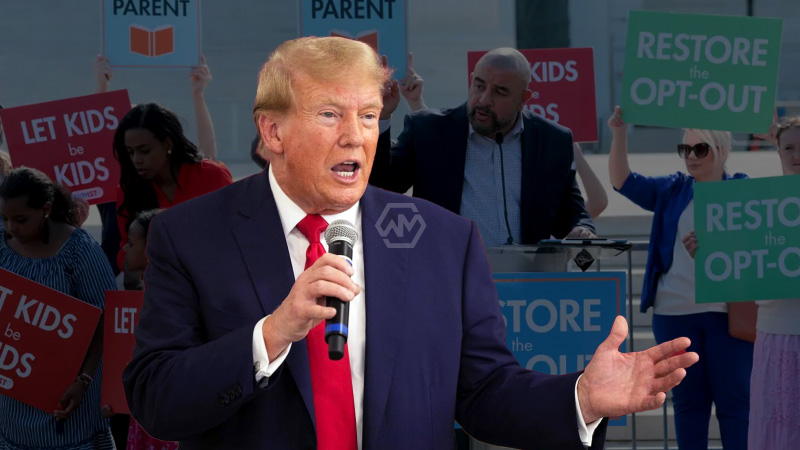- Supreme Court rules 6–3 in favor of religious parents challenging LGBTQ-themed books in schools.
- The decision mandates opt-out rights based on religious beliefs.
- Dissenters warn of long-term effects on educational inclusivity and civic unity.
In a landmark decision, the U.S. Supreme Court sided with a group of religious parents seeking to exempt their children from reading LGBTQ-themed storybooks in a Maryland public school district.
The court’s conservative majority ruled that the school policy violated the First Amendment’s Free Exercise Clause by forcing children to engage with material that contradicts their family’s faith-based values.
Parental Religious Rights Prevail Over LGBTQ Curriculum in Supreme Court Decision
The court’s 6–3 ruling reverses a lower court decision that had upheld the Montgomery County Board of Education’s policy. At the heart of the case were books such as Uncle Bobby’s Wedding and Born Ready, which introduced students to characters from LGBTQ families and narratives. The board had intended these materials to foster inclusion and represent the lived experiences of all students in the classroom.
For the plaintiffs, however, the issue wasn’t one of representation—it was one of conscience. They contended that exposure to these materials undermined their efforts to raise children in accordance with religious doctrine. By denying opt-outs, they argued, the district infringed on their constitutional rights to guide their children’s moral and spiritual development.
This ruling may set a new precedent for how schools across the U.S. address religious objections to curriculum content. Legal experts say it could open the door to similar challenges not only around LGBTQ themes but also other topics that intersect with personal belief systems. It also complicates how educators must balance inclusivity with religious accommodation.
Opponents of the decision argue that the court’s prioritization of religious liberty could effectively erode inclusive education. Justice Sotomayor warned in her dissent that shielding children from exposure to diverse perspectives could lead to greater division and misunderstandings in society. Advocates for LGBTQ rights fear the ruling will empower further censorship of marginalized voices in school settings.
This ruling underscores a shifting legal landscape in which religious liberty is increasingly being weighed against public education’s inclusive goals. The long-term consequences remain uncertain but deeply consequential.
“Education is the most powerful weapon which you can use to change the world.” — Nelson Mandela



